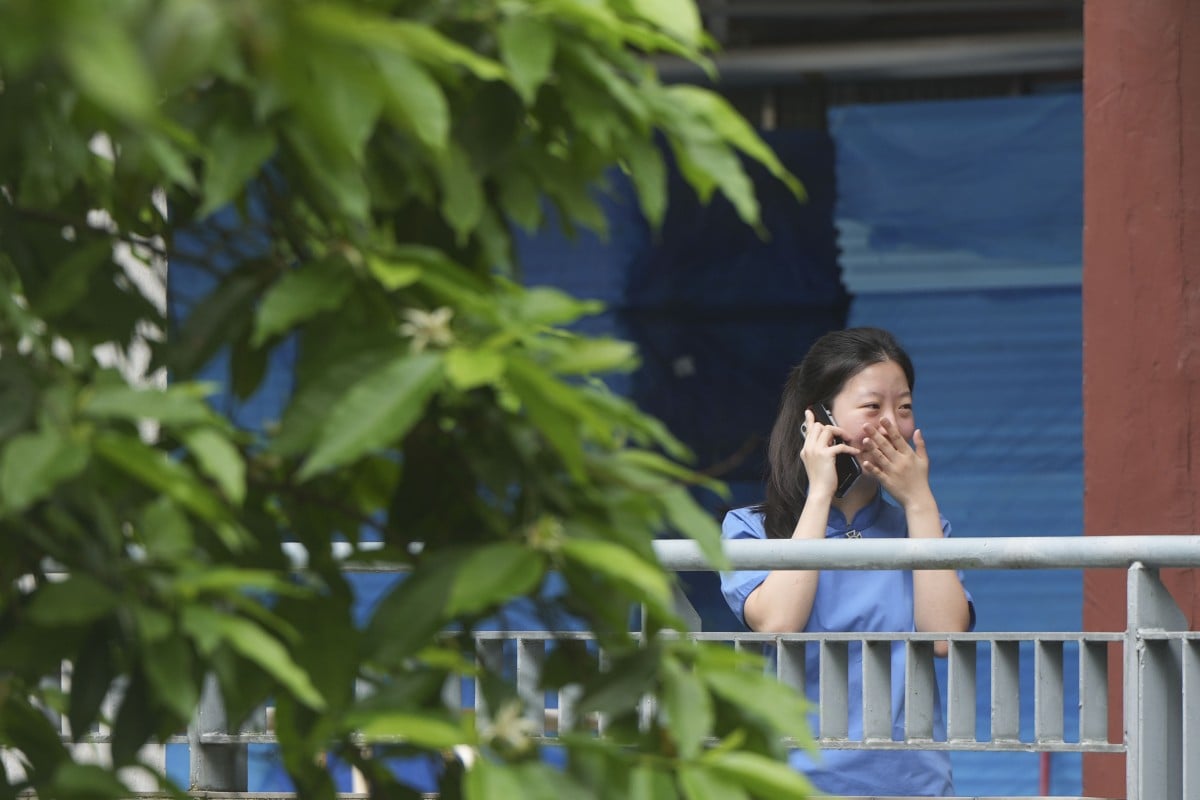 Receiving your DSE results can result in a range of emotions, say teachers and mental health experts. Photo: Sam Tsang
Receiving your DSE results can result in a range of emotions, say teachers and mental health experts. Photo: Sam TsangWith about 55,000 Hong Kong candidates receiving their Diploma of Secondary Education (DSE) exam results on Wednesday, some will have performed less well than they expected or did not meet the minimum university entry requirements.
So what can students left disappointed by their results do? Here is some advice from teachers and a mental health expert.
1. What options do students with fewer than 20 points have?
DSE subjects are graded from level 1 to 5**, the highest mark. The grades translate to points – with 5** worth seven and 5* six – for the three core subjects of Chinese, English and maths and up to three electives. A fourth core subject, citizenship and social development, is assessed with a “pass” or “fail” grade.
According to Ng Po-shing, a student guidance consultant of the Hok Yau Club, those scoring 16 to 19 marks in the best five subjects will have a slimmer chance of getting into university compared with last year, when 20 points gave a stronger chance to receive an offer.
He said those with lower marks should take a more conservative approach in selecting their choices in Jupas, a centralised application system for full-time undergraduate courses, as more students had met the general university entrance requirements.
Ansley Lee, an English teacher and student counsellor at Kiangsu-Chekiang College, suggested that students pick a course that truly fitted their personal strengths, what they enjoyed, and their long-term career aspirations rather than just thinking about the university’s “brand”.
She said, for instance, if they were strong in arts subjects and wanted to become a kindergarten teacher, they could find any early childhood education programmes that helped them get the professional licence and experience needed.
“Or, if they want to be a nurse but can’t get into a degree course, look into the direct training programmes offered by hospitals,” she said.
“Completing these can qualify them as an enrolled nurse, and with more experience and study, they can still become a registered nurse.”
They could also consider associate degrees or private universities. If they only obtained a Level 2 in five subjects, Lee advised them to go for a higher diploma.
2. What about associate degrees and higher diplomas?
The basic requirements for associate degrees and higher diplomas are the same. However, the annual fees for higher diplomas were generally cheaper than for associate degrees, Alan Chan, a tutor at King’s Glory Education Centre, said.
Those choosing associate degrees usually planned to get into university, Chan said, while higher diplomas might focus on practical skills or areas for specific careers.
Even if students decided not to pursue a degree, their chances of employment might still be good, as higher diploma courses usually provided more internship opportunities, Chan said.
3. Should students opt to have DSE papers rechecked?
It is understandable that some students will feel a mistake has been made. However, Lee recommended that students only ask for a recheck if their teachers had previously said their handwriting was illegible, as there was a chance their answers had been misread.
Those who ask for a recheck will need to pay a fee, with the amount varying depending on the subject.
DSE 2025: How to mentally prepare yourself for results day
4. Can you modify programme choices via Jupas?
Those who wish to modify their course choices can only do so once free of charge between July 17 and July 19, and within an allocated time slot.
They can either replace up to five choices with new ones, add up to five new picks – as long as the total does not exceed 20 – rearrange them, or delete some from the list. If you need to submit again because you missed the deadline or want to update your submission, it will cost HK$250.
As a teacher who has taught thousands of DSE students over the years, Andy Yeung, a tutor at Beacon College, noted that some were not sure what their “interests” were and regretted their choices later.
“My advice is to choose what you are capable of. Think of it like buying a flat. You wouldn’t spend your entire budget on the cheapest one. Instead, you’d try to get the best possible flat by making the most of your budget,” Yeung said.
“You can always change your mind or explore a different academic area even after you complete your undergraduate degree.”
Former DSE top scorer publishes book of tips for tackling the Chinese paper
5. How do you rebuild confidence after a setback?
For pupils downcast about their results, it was OK to acknowledge the feeling of disappointment, said Katie Leung Pui-yan, a child and family therapist at Therapy Partners.
Leung said it was normal for students to feel disappointed if the results were not what they had hoped for. She suggested students reflect on how they would have done it differently if they were to redo their revision, and then think of the things that they had done well during the exams.
“This self-reflection process is not about blaming yourself; it’s about learning and growing. This is how we own up to our actions and responsibilities and grow from our challenges,” she said.

